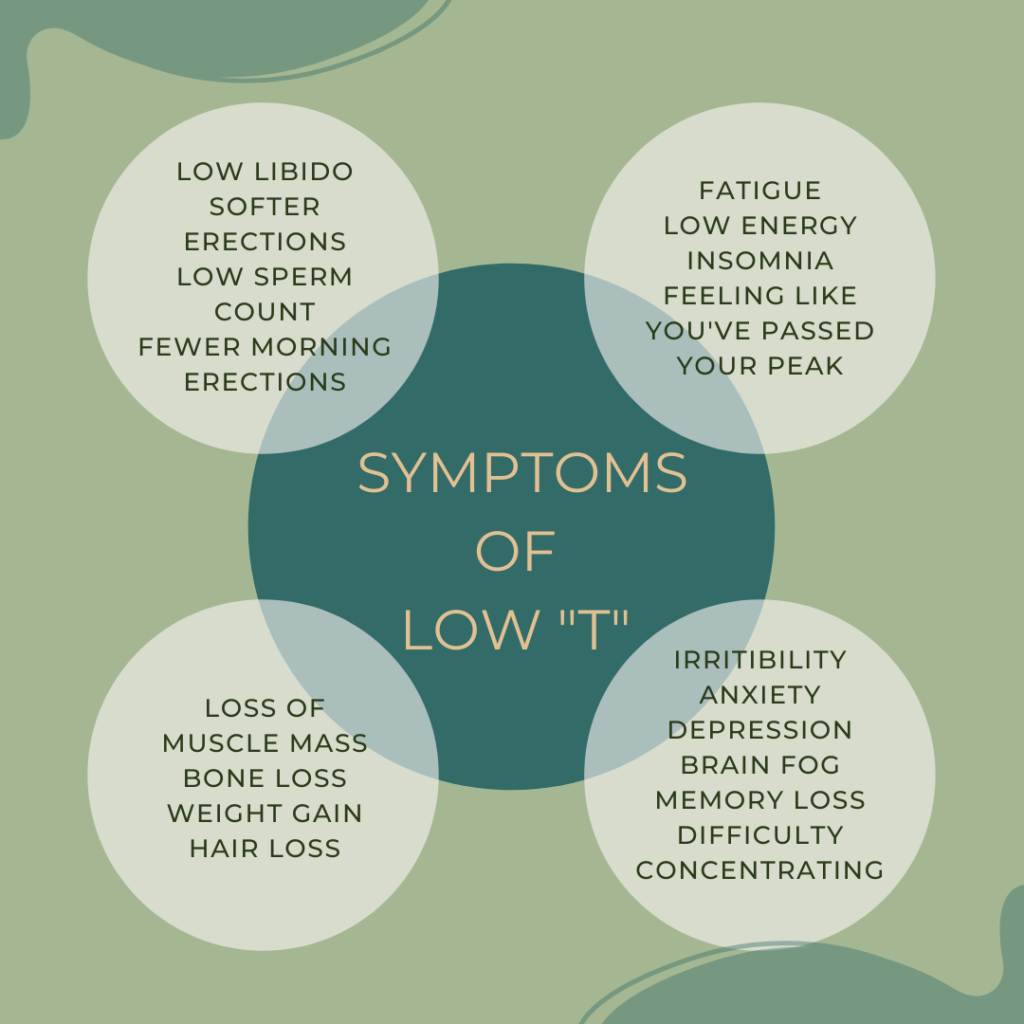Most of us know that the primary hormone that drives men’s health is testosterone. As in women, testosterone declines as men age. This decline in testosterone in men is called Andropause.
Testosterone is produced primarily in the testicles in men and plays a central role in a man’s appearance and sexual development. Testosterone stimulates sperm production, stimulates libido, and supports bone and muscle mass. Research has found that testosterone has a protective effect on a man’s health. Low levels of testosterone are associated with increased risk of chronic disease and all-cause mortality. Though testosterone is so vital to a man’s health and wellbeing, it is also a casualty in the process of aging.
When a man reaches his 30s, testosterone levels begin to decline, dropping by approximately 1 percent each year. The period of time when a man begins to experience symptoms of low testosterone—most often in his late 30s to early 40s—is also known as andropause. By the time a man is in his 70s he has only a fraction of the testosterone he had in his twenties, making him susceptible to heart disease, metabolic syndrome, and several other preventable chronic diseases.

Creams and gels are preferred by some patients for their ease of applications and are a common delivery method. However, it is important to know hat the risk of transference is high – higher than any other delivery method
Injections are preferred by some patients because they may be administered at home. Although convenient, injections can lead to highs and lows during the treatment cycle and may leave patients feeling uncomfortable between doses.
Pellet therapy is a method of delivery that dates back to the 1930s and offers convenient and effective treatment. A tiny pellet about the size of a grain of rice is inserted under the skin and is slowly metabolized over 5-6 months. This method of delivery is vastly similar to the natural cycle of the human body. There is no risk of transference, no daily application, and therapy is administered in even doses, avoiding highs and lows. See more info below…
Nutraceuticals (pharmaceutical-grade supplements) are an important part of supporting hormone optimization. For example, vitamin D, magnesium, and zinc have been linked to promoting healthy testosterone levels. Nutraceuticals are essential to promote increased uptake of testosterone as well as support natural improvements in hormone levels
Research shows that a higher-fat and low sugar diet can support healthy testosterone levels. Fatty fish, like salmon, dark leafy greens, like kale and spinach, avocado, eggs, and berries top the list of foods that support optimal testosterone levels.
Physical activity of any kind is beneficial to better health, but it is well known that resistance training and/or weight bearing exercise promotes both long- and short-term boosts in testosterone. Afternoon workouts offer the most effective boosts in testosterone.

Copyright © 2022 Balanced Health All rights reserved

Please let us know how we can help you!
To get started with our practice we recommend either scheduling a complimentary 15-minute one-on-one discovery call or attending one of our virtual discovery events. During your consultation we will listen to your concerns and give you an overview of our practice philosophy and provide you with education about balancing your hormones. If you feel our practice is the right fit for you, we will send an order for lab work to the lab of your choice and schedule your first in-office visit. During your first in-office visit, we will review your lab results, give our recommendations, and discuss your options for hormone replacement therapy.
We are dedicated to providing you with an individualized plan of care that we are both comfortable with. We will never push you into a decision that you are not ready to make. Our goal is to help you get well and stay well! It is our hope that we can walk along side you during your hormone health journey!